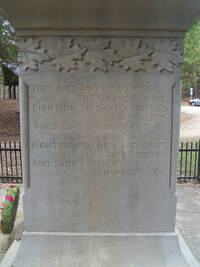Drippings from the Honeycomb
More to be desired are [the rules of the Lord] than gold, even much fine gold; sweeter also than honey and drippings of the honeycomb. (Psalm 19:10)
|
The seeker sensitive movement arose in the 80s and was an attempt in the post-revival age, and a post denominational age where many were disenchanted with traditional forms of church, to reach the masses for Christ.
With so many people giving up on Christianity, what could be done to stem the tide? As with the liberal project of seeking to accommodate culture at the expense of truth (which has failed miserably), the seeker sensitive movement, while in many ways laudable, attempted to do something similar and so fell short of its desired goal. Bands, skits, videos, cool preachers, etc, cannot in themselves save and transform and save, but rather a robust presentation of the Gospel and a life lived in light of God’s Word. The Willow Creek Church did a study on their brand of being seeker sensitive about a decade ago and discovered it was, “a mile wide and an inch deep.” Lots were coming to church, perhaps even becoming disciples of Jesus and joining the church, however, a committed level of discipleship was wanting. This raises the question: what is the purpose of the gathered church in relation to the people of God (aside from glorifying God in worship)? The answer is to equip the saints (Eph 4:12) and to build up God’s people in the most holy faith (Jd 1:20). We gather as Christians to be scattered as Christians. Whilst in our gathered state should be enjoyable (which is different than entertaining) and not a strange world to a visitor who might come along (as described by Justin Martyr in the early Church) and a place where the Gospel is proclaimed, the gathered church’s purpose is nevertheless not evangelism, but discipleship. If our services seek to provide robust opportunities for worship and discipleship, primarily aimed at believers, but accessible to earnest inquirers, the result would be that our churches would not be a mile wide and an inch deep, but a mile deep… It doesn’t necessarily then mean we’d only be an inch wide (though I think even this is preferable to a breadth that may only be visibly “Christian”). What it means is the church will be so strengthened to fulfil the Great Commission that the place of evangelism and mission (not precluding evangelistic services or corporate acts of evangelism) would be in our homes and schools and neighbourhoods, and friendships as robust disciples of Jesus Christ. And THAT, is how the early Church grew so explosively. So may we take Jesus’ command to make disciples seriously, be robust to that end in all we do, and as we seek to fulfil the GC, trust that the Lord will build His Church. The Lord’s Sweetest Blessings, Chris Many people today would not identify as “religious” but rather “spiritual.” Part of this is a reaction against the nominalism and abuses of organised religion. Part of this is also due to the anti-authority climate of the day, which rejects what Divine religion may require, favouring instead the subjective notion of being “spiritual” as one personally chooses to define it. Picking up on this language shift, either consciously or unconsciously, many Christians will often respond to an unbeliever’s comment, “I’m not religious,” with a “Neither I’m I, it’s not about religion but a relationship,” or “I’m not religious, I’m a person of faith.” Now neither of those two responses, and others like them, are in themselves wrong— I’ve used them myself. However, is religion an altogether unhelpful word?
Religion means: a) of reverence to the Divine, or b) a set of beliefs, or C) to be devoted and zealous. Not that this alone sanitizes it, but it is a word we find used in the Bible: Negatively of man-made religion (Acts 25:19, 26:5; Col 2:23) or of mis-guided religion (Acts 17:22). More positively, though in a form of a warning, we find it used in James 1:26–27: 26 If anyone thinks he is religious and does not bridle his tongue but deceives his heart, this person's religion is worthless. 27 Religion that is pure and undefiled before God, the Father, is this: to visit orphans and widows in their affliction, and to keep oneself unstained from the world. (emphasis mine). Here James is not saying religion is bad, rather he is contrasting a worthless and a worthwhile form of religion, or true religion and false religion. Historically, to say one was religious was synonymous with saying someone was a Christian. To be non-religious or of another religion was to embrace false religion (just as being “spiritual” does not necessarily mean the “spirituality” one has embraced is positive). Though “religion” is an unpopular word, I do not think it has lost its value, if clarified. Christianity is a religion, it is a set of beliefs (divine revelation). Christianity is a religion, it is reverence and devotion to the true God. Religion is truth and anything other than the truth is a false religion. Certainly a relationship is central to the Christian religion, without it all that is left is a dead religion, however, it is still a religion and something to be proud of if asked to declare your religion—CHRISTIAN! So the next time someone derides what is actually a helpful idea, you might reply (either within the church or in apologetics and evangelism without) with one of the following responses. Person A, “I’m not religious.” Person B, “Why not?”, or “What does religion mean to you?”, etc. Something to think about. The Lord’s Sweetest Blessings, Chris  Today is Remembrance Day; the banks and post offices are all closed and people are encouraged to attend their local cenotaph to remember all those who have served, and died, for the civic freedoms we enjoy, past and present. We owe it to them to remember, we owe it to ourselves to remember, lest we fail to learn from the horrors of conflicts past and present. The cost of many conflicts and the terrors many individuals and families endured, have led a great many to believe that to die for “king and country” is to gain immorality. This was certainly the case as communities grappled with the Great War (1914–1918). This is captured on a local cenotaph which reads: They died as few men get the chance to die, fighting to save a world’s morality, they died the noblest death a man may die, fighting for God, and right and liberty, and such a death is immortality. Now aside from the cult of Imperialism inherent in this quote and some less than qualified statements (some of which are true in part), the last line is very unsettling to me as a Christian. “And such a death is immortality.” When we wrestle with trials greater than our comprehension, we ought not to create our own truths and false assurances but to turn to the truth and clarity of Scripture and the promises it offers concerning immortality, through which alone we can find a blessed assurance. Sadly, theological liberalism and nominal Christianity compounded during the Great War to lead many to foolishly embrace such sentiments as expressed on this war memorial. Truly, to selflessly lay down one’s life for the good of one’s country and “right and liberty” is a noble form of death, but “noble” and salvific are two very different things. The Bible is very clear that salvation and immortality come only through faith and not works, even of the noblest kind: And this is eternal life, that they know you the only true God, and Jesus Christ whom you have sent. (John 17:3) So may we remember the fallen today, but may we remember the greatest death of all, that of the Lord Jesus Christ, and the peace He won that day, in the great spiritual conflict of our age, so all those who believe might be saved and so find peace with God, eternally. The Lord’s Sweetest Blessings, Chris  The highest church building in England is that of Brentor, Devon. Build atop a large Tor on the edge of Dartmoor the church rises hundreds of feet above the village below. Until a new church was built in the village in the 1800s worshippers literally had to “go up” to the house of the Lord. Such was the case in ancient Israel with the Temple. The Temple Mount actually sits atop Mount Moriah which itself is overshadowed by higher hills around it. It is a sort of hill within a ring of hills. It is this image of having to ascend from the valley below to the Temple that the pilgrim had in mind in Psalm 122:1 when he said: I was glad when they said to me, ‘Let us go up to the house of the LORD!’ Under the Old Covenant the Temple was the centre of the sacrificial system for making atonement for sins and the presence of the LORD on earth. His public worship, as prescribed by countless commandments, was therefore centred around the Temple where the Israelites were “to go up” to benefit from these two primary functions. Though under the New Covenant the function of the Temple has been replaced by the Cross and the Holy Spirit, “to go up” is still relevant for it refers to the act of Christians gathering together for public worship. Whilst Christians are to worship the Lord through every aspect of their lives, and can also do so privately, to gather together for the public worship of the Lord on His appointed day is a chief form among them all. To enter into His presence, sing His praises, hear from His Word, have the ordinances (baptism and communion) administered and fellowship with other believers; these are all reasons to attend public worship (duty) and do so with gladness (delight). “To go up” means the process can be demanding of us in some way, but that any ardours melt away when we consider the end of our worship, the LORD, and when are efforts, or rather our faith in this means of grace, is rewarded with untold spiritual blessings. The Lord and not the location or building, the pastor or the people, is the object of this act of worship and the reason for going. He is the centre and spring of all of our gladness along with our desire to go. If we love Him, we’ll love “to go up.” The Lord’s Sweetest Blessings, Chris |
Featured BlogsLearn about Jesus Author:
|
LocationPO Box 73,
144 Lorne Street, Markdale N0C 1H0 |
Join by zoom |
Contact us |
DonateCheque made payable to:
Markdale Baptist Church E-transfer sent to: mbc.deposits@outlook.com |
|